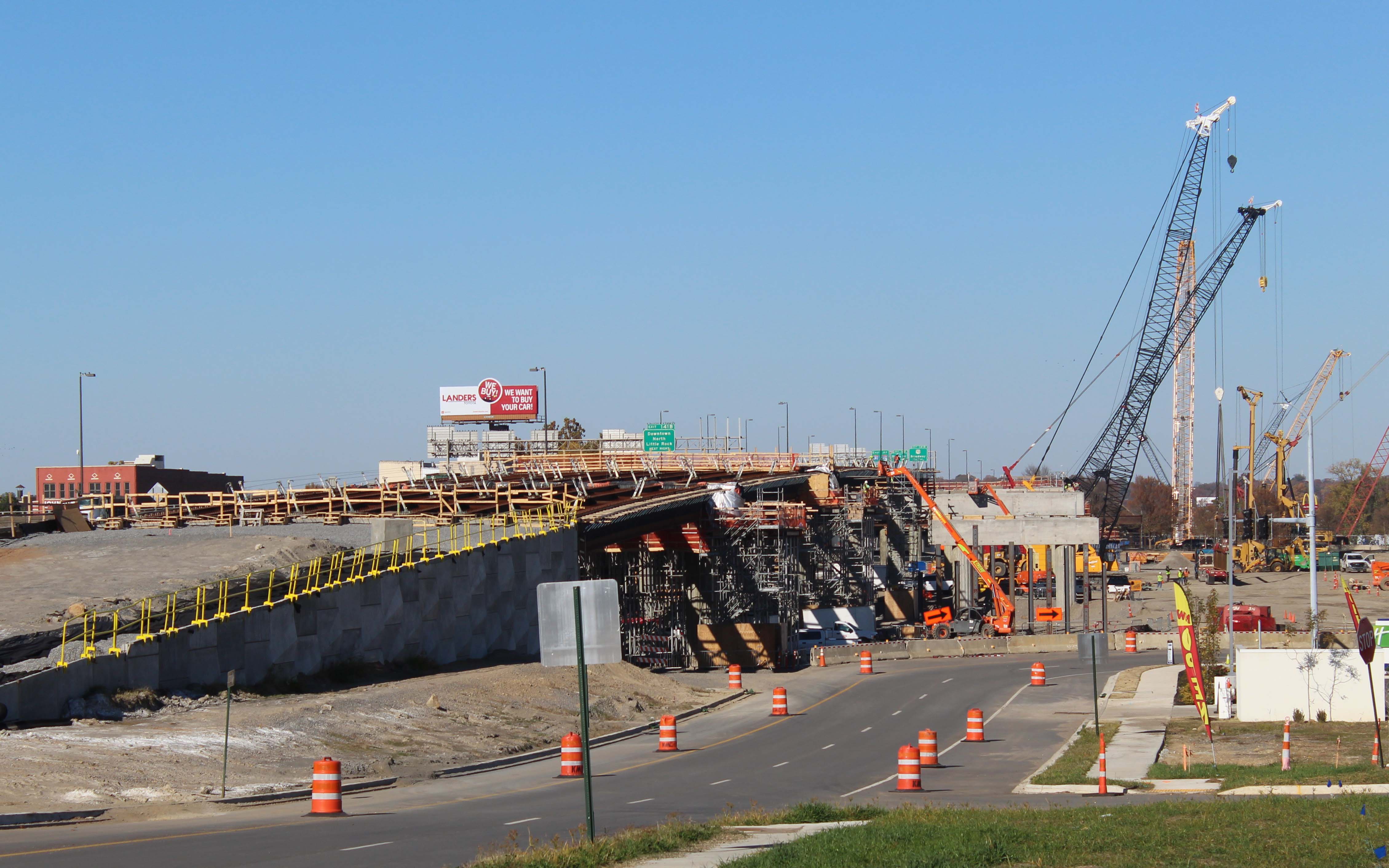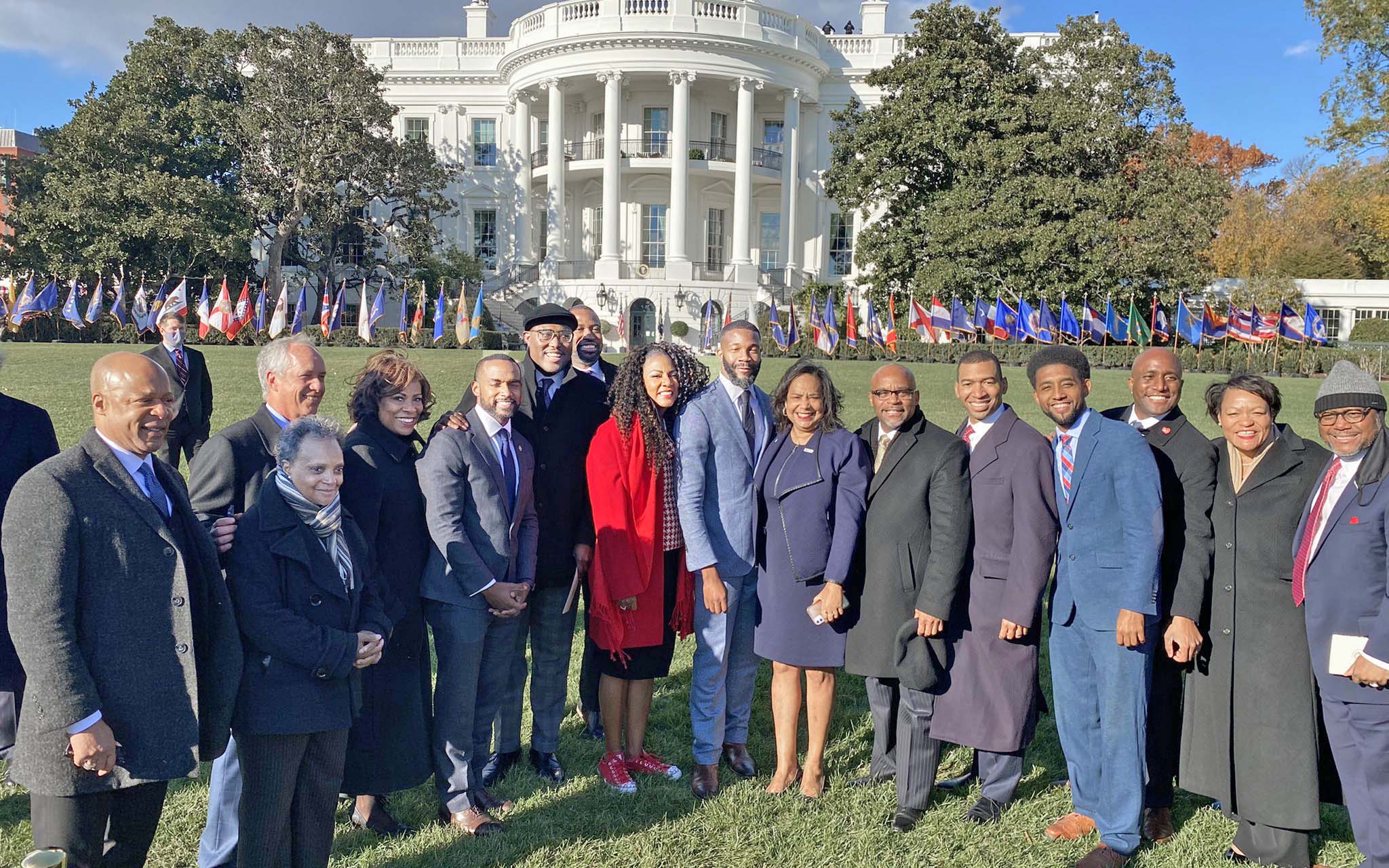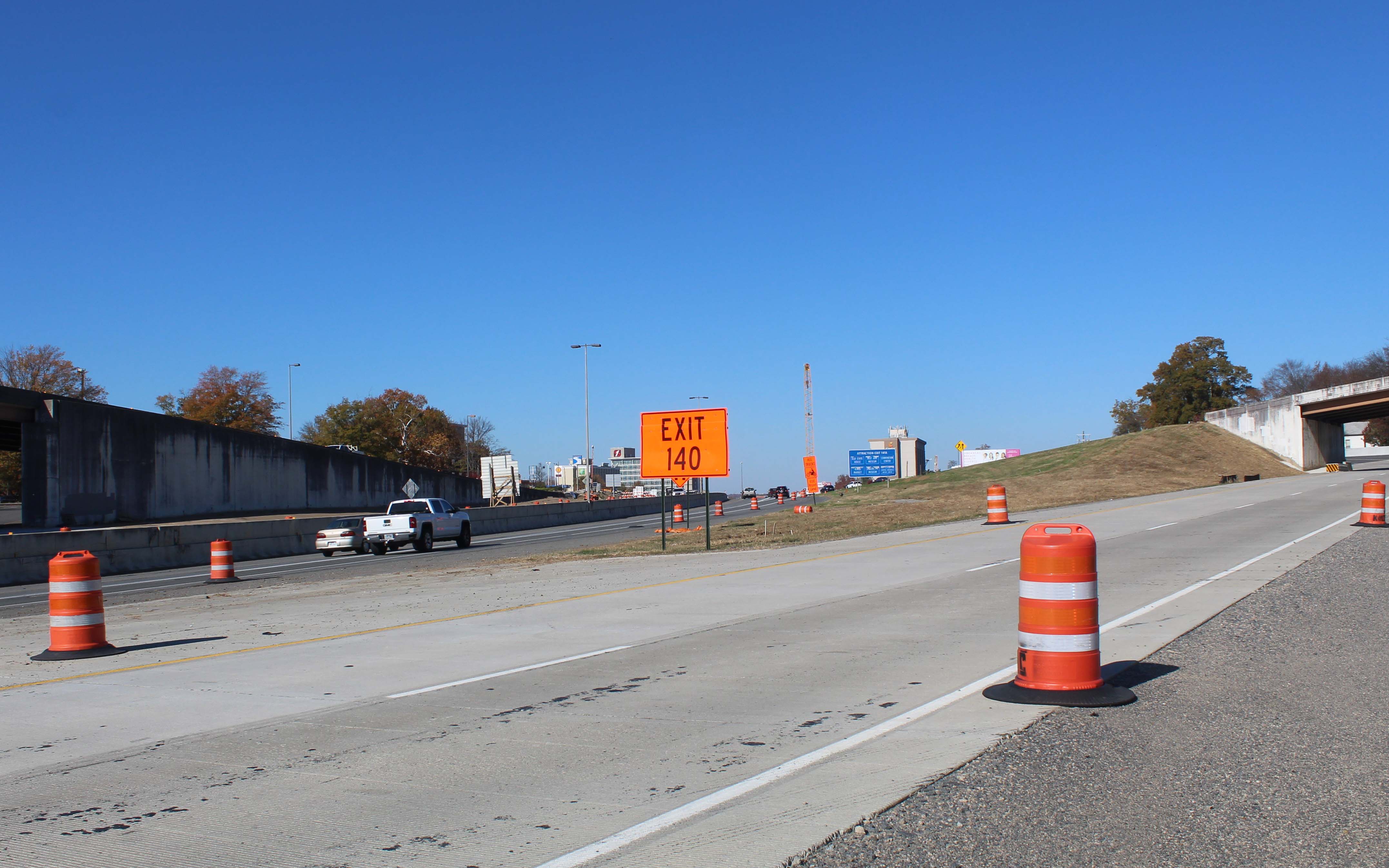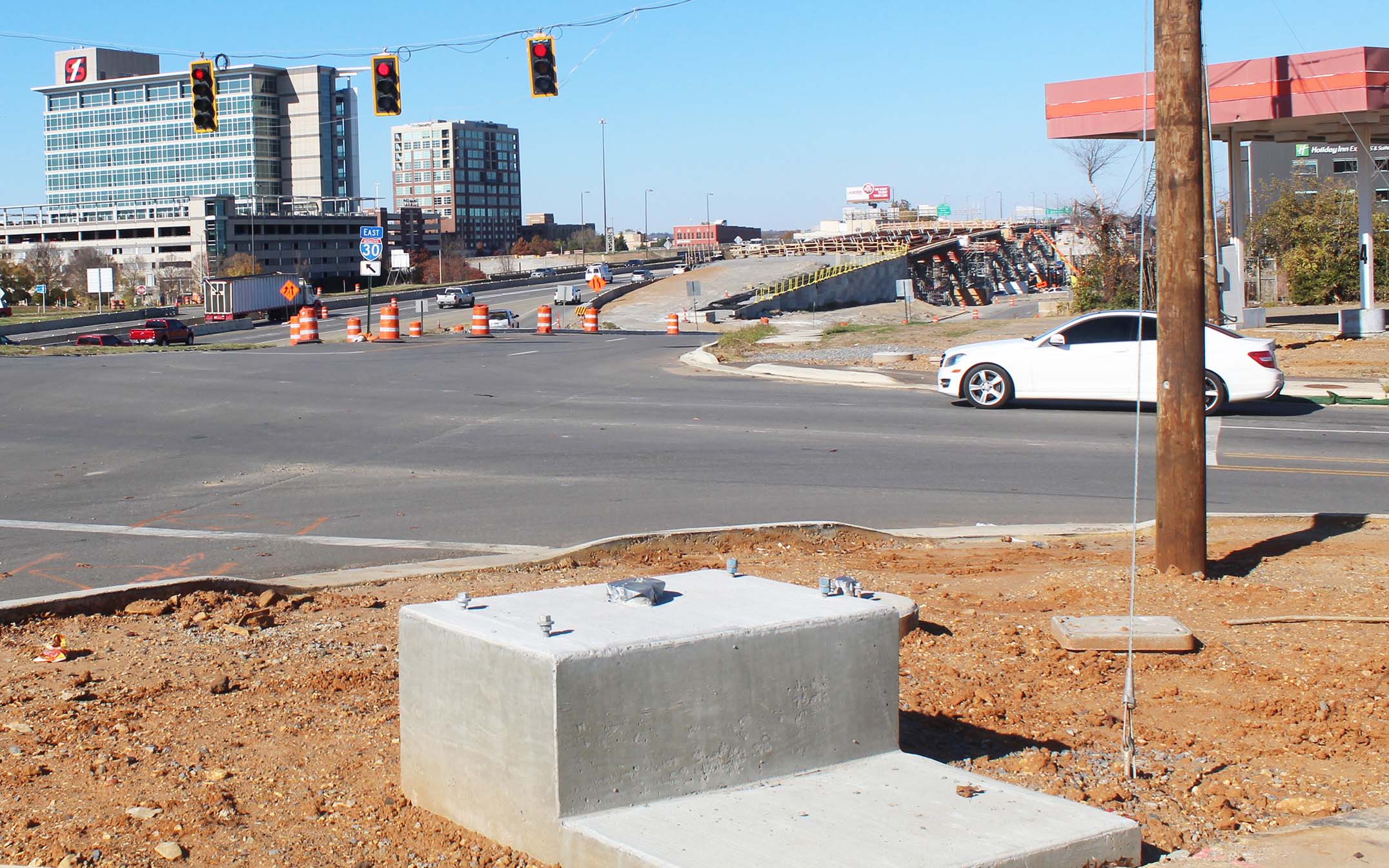Arkansas’ $4 billion slice of infrastructure spending targets aging bridges, roads and rural broadband networks
November 29 - December 5, 2021
By Wesley Brown
If President Joe Biden’s prediction is correct, Arkansas and the rest of the U.S. will soon see a flood of new jobs and economic activity as billions of dollars from the huge $1.2 trillion Infrastructure Investment and Jobs Act flows into the state.
Signed into law by President Biden on Nov. 5, the White House and other trade groups have released details that estimate Arkansas’ piece of the infrastructure bill pie to build new bridges, roads and broadband networks will be as high as $4 billion.
According to the American Society of Civil Engineers (ASCE), the infrastructure bill represents a historic, once-in-a-generation investment in our roads, bridges, water and wastewater networks, ports, electric grid, dams, and more. In addition to increasing funding to all 50 states, the huge spending plan also makes smart improvements to policy such as streamlining permitting and creates new programs targeted at almost all 17 categories in the 2021 Report Card for America’s Infrastructure.
“The bill is a significant down payment on the $2.5 trillion infrastructure investment gap that was identified in the 2021 Report Card and will benefit American businesses and families for years to come,” ASCE said in the statement.
While the nation’s infrastructure earned a C- grade in the 2021 Infrastructure Report Card, Arkansas faces infrastructure challenges of its own. For example, the annual report card shows that driving on roads in need of repair in Arkansas costs each driver $671 per year, 4.9% of bridges are rated structurally deficient, and drinking water needs in Arkansas are an estimated $7.4 billion.
Also, the highly watched report card shows that 193 dams in the Natural State are high-hazard potential, while the state’s schools have an estimated capital expenditure gap of $350 million. Overall, the ASCE assigned Arkansas an overall grade of C, noting that Arkansas has the nation’s 12-largest highway system with 31% of the state’s roads in disrepair.
“This deteriorating infrastructure impedes Arkansas’s ability to compete in an increasingly global marketplace. Success in a 21st-century economy requires serious, sustained leadership on infrastructure investment at all levels of government,” stated ASCE. “Delaying these investments only escalates the cost and risks of an aging infrastructure system, an option that the country, Arkansas, and families can no longer afford.”
Other trade groups such as the Associated General Contractors of America and National Association of Manufacturers with hundreds of members in Arkansas also applauded passage of the historic infrastructure bill. AGCE Chief Executive Stephen Sandherr said in a recent statement that the legislation provides the kind of funding needed to modernize the country’s aging and overburdened infrastructure. The legislation also maintains the policy of One Federal Decision, cutting the amount of time needed for federal reviews of infrastructure projects.
“Because of today’s vote, state and local officials will be able to invest in a more efficient supply chain network. They will also be able to improve roads and bridges to make them safer and more reliable. Metro areas will be able to better maintain and expand transit systems. And water authorities will be able to further safeguard the quality of local drinking water, among other improvements funded by this bill. The measure also provides needed investments to make infrastructure more resilient to extreme weather events.
“Once the President signs this bill into law, our members are ready to begin the hard, but necessary, work of rebuilding the nation’s infrastructure. They will also begin the work of building rewarding careers for a generation of new construction professionals because of this measure,” added Sandherr.
NAM President and CEO Jay Timmons also championed many of the provisions in the legislation, noting the “transformational change it will bring about has been decades in the making.”
“Manufacturers commend Congress for coming together to pass this historic, bipartisan legislation. The Infrastructure Investment and Jobs Act makes America stronger, with a promise to renew and revitalize our nation’s physical infrastructure, improving productivity and quality of life for everybody—and without raising taxes or jeopardizing economic growth and manufacturing jobs,” said Timmons.
“Failure to invest has been a drain on America’s economy, costing families and businesses significant time and money,” said Timmons. “This type of investment will enable us to continue to grow our economy and get started on building the world-class infrastructure that will enable us to lead through this century and into the next.”
Closer to home, the Walton-family Heartland Family think tank highlighted $65 billion in new broadband investments, especially in rural areas that are lacking internet infrastructure. At the behest of Gov. Asa Hutchinson, the Bentonville-based think tank on July 7 published a new report that offers guidance to Arkansas policymakers seeking to bolster the state’s economic rebound and growth as it recovers from the COVID-19 pandemic.
In the 77-page report, called the “Arkansas Economic Recovery Strategy,” Heartland Forward analyzed comprehensive data across six key economic areas commissioned by the Arkansas Economic Recovery Task Force. Of note, the study concluded that Arkansas was hard-hit by the pandemic in unique ways, including the urban-rural digital divide where 35% of households have no access to internet.
“(The) historic passage of the federal infrastructure package is welcome news in the fight to close the digital divide across the heartland. Containing billions of dollars in funding to expand internet access across the country, this legislation holds great promise to improve life for everyday Americans — especially the estimated 40 million Americans who still lack access to the reliable, affordable high-speed internet needed to participate fully in our digital age,” said Angie Cooper, chief program officer for the Arkansas research group. “Now the real work begins to make sure every dollar is spent efficiently and supports the communities it’s intended to help. Heartland Forward is eager to continue our work with policymakers and community groups as we help get this unprecedented funding to heartland residents.”
Meanwhile, the White House released a fact sheet in August detailing that Arkansas would expect to receive nearly $3.6 billion for federal-aid highway apportioned programs and $278 million for bridge replacement and repairs under the new legislation over the next five years.
In addition, Arkansas can also compete for the $12.5 billion Bridge Investment Program for economically significant bridges and nearly $16 billion of national funding in the bill dedicated for major projects that will deliver substantial economic benefits to communities.
Over the coming days and weeks, the Biden administration said it plans to release additional information on the impact of new infrastructure spending on Arkansas’ economy. Based on current day projects, the Biden administration released the following numbers concerning the state’s portion of the federal appropriations. Specifically, the Infrastructure Investment and Jobs Act will:
• Build a network of EV chargers to facilitate long-distance travel and provide convenient charging options. Arkansas would expect to receive $54 million over five years to support the expansion of an EV charging network in the state. Arkansas will also have the chance to apply for the $2.5 billion in grant funding dedicated to EV charging in the bill.
• Help connect every American to reliable high-speed internet. Arkansas will receive a minimum allocation of $100 million to help provide broadband coverage across the state, including providing access to the at least 461,000 Arkansans who currently lack it. Also, 980,000 or 34% of people in Arkansas will be eligible for the Affordability Connectivity Benefit, which will help low-income families afford internet access.
• Prepare more of our infrastructure for the impacts of climate change, cyberattacks, and extreme weather events. Arkansas will expect to receive $23 million over five years to protect against wildfires and $16 million to protect against cyberattacks. Arkansans will also benefit from the bill’s historic $3.5 billion national investment in weatherization which will reduce energy costs for families.
• Deliver clean drinking water to every American and eliminate the nation’s lead service lines and pipes. Based on the traditional state revolving fund formula, Arkansas will expect to receive $528 million over five years to improve water infrastructure across the state and ensure that clean, safe drinking water is a right in all communities.
• Improve our nation’s airports. Local airports in Arkansas would receive approximately $117 million for infrastructure development for airports.
Arkansas political divide
On the political front, Democrats and Republicans in Arkansas are on opposite ends of the spectrum concerning President Biden’s historic win. Mayor Franks Scott Jr. was among key Democrats from across the U.S. that were invited to Washington, D.C., to attend the White House signing event for the bipartisan infrastructure bill, which was approved by a 228-206 vote in the U.S. House.
On his Twitter page, Scott posted pictures of himself on the White House lawn with President Biden and Vice President Kamala Harris speaking at the bill signing.
“I am proud to accept @POTUS’ invitation to represent Little Rock at the @WhiteHouse signing ceremony for the Bipartisan Infrastructure Deal this afternoon,” tweeted Scott. “With Arkansas set to receive $4B (billion), the deal will greatly improve Little Rock’s streets, public transit, and port.”
Newly elected DPA Party Chairman Grant Tennille also took the time to criticize the Arkansas congressional delegation for voting against the $1.2 trillion infrastructure. In a news release, Tennille said Arkansas’s all-Republican congressional delegation “voted in lockstep against delivering $3.6 billion for Arkansas roads and bridges; $100 million for broadband internet to reach rural homes; and $528 million for clean drinking water in every county.”
“This is an important moment that marks the beginning of truly meaningful infrastructure investments in Arkansas not seen in generations. It will create thousands of new jobs in every part of our state. It will matter to families - and to entire towns - for years to come. Every person and every business in Arkansas benefits from fixing our roads and making dangerous bridges safe again. Every farmer and every family will benefit from landmark commitments to water quality and irrigation projects. Every community will benefit from working broadband internet that is affordable,” Tennille. “This is about caring enough about Arkansas to make a commitment to our future and about providing a foundation for people to stay, build, and lay firm foundations for our state.”
Tennille, the former head of the state Economic Development Commission under former Gov. Mike Beebe, added that the state’s infrastructure needs have gone unfunded and neglected for years, especially across rural Arkansas.
“It’s disappointing but not surprising that Sen. John Boozman, Sen. Tom Cotton, Rep. Rick Crawford, Rep. French Hill, Rep. Steve Womack, and Rep. Bruce Westerman all voted against delivering $3.6 billion for Arkansas infrastructure,” said Tennille, who was elected as the DPA’s new party chair on Oct. 2. “When we see the economic development and ribbon cuttings in the years to come, let’s make sure we know how it was made possible. Our congressmen could take a cue from Gov. Asa Hutchinson who characterized the landmark bipartisan plan as ‘setting aside partisan differences to pass a bill that works for the American people.’ I believe the people of Arkansas will see it the same way.”
But after voting against the measure on Nov. 5, Rep. Hill said the infrastructure bill paved the way for Democrats’ tax-and-spending spree, including the $1.75 trillion Build Back Better Act that was later approved by the House on Nov. 19 after an eight-hour filibuster by House Minority Leader Rep. Kevin McCarthy, R-California.
“Speaker Pelosi waited until most Americans were asleep to bring a bill to the floor paving the way for President Biden’s ‘signature’ Build Back Better agenda. Make no mistake, Democrats’ agenda is hanging on by a thread, and today’s vote is nothing more than an effort to keep it on life support.
“Democrats are using legislative smoke and mirrors to give the impression that their $1.75 trillion tax-and-spending spree and infrastructure bill are de-linked – nothing could be further from the truth,” stated Hill. “Taken together, these bills will only compound the cost-of-living pressures facing hardworking Arkansas families now and into the future due to the immense increase in total government debt burdens.”
As noted by Hill, the nonpartisan Congressional Budget Office estimated that the Build Back Better” legislation, if passed through Congress, would increase the U.S. deficit by $367 billion over 10 years. The White House Budget Office, however, has countered that the legislation would not add to the nation’s budget deficit, which is projected to reach $3.4 trillion in 2021.
The Build Back Better Act, which the Biden administration calls the nation’s social infrastructure plan, was approved in a tight party line vote of 220-213. It is now headed back to the U.S. Senate for reconciliation, where President Biden needs all 50 votes from Democratic Party senators and the vice president for final approval.
The nearly 2,500-page legislation includes once-in-a-lifetime proposals addressing childcare, health care, housing, education and climate change. Arkansas Sens. John Boozman and Tom Cotton have both indicated they would not vote for the measure, which the U.S. Senate is expected to take up after Thanksgiving.
PHOTO CAPTIONS:
1. Planes, Trains, Broadband and Electric Cars: Arkansas readies for flood of infrastructure dollars
Based on the White House’s funding formula, Arkansas will receive nearly $3.6 billion for federal highway programs and $278 million for bridge replacement and repairs over the next five years under the Infrastructure Investment and Jobs Act of 2021.
2. Little Rock Mayor Frank Scott Jr. (center with hat and glasses) attends the Nov. 15 signing ceremony at the White House for President Biden's Infrastructure Investment and Jobs Act.
3. The $1.2 trillion infrastructure bill approved by Congress on Nov. 5 will reauthorize surface transportation programs such as the state Highway Department's Connection Arkansas Program and invest $110 billion in additional funding to repair our roads and bridges and support major, transformational projects.
4. Construction on the $630 million I-30 Crossing project in downtown Little Rock is undergoing a major traffic shift for the foreseeable future due to replacement of the Arkansas River bridge.






